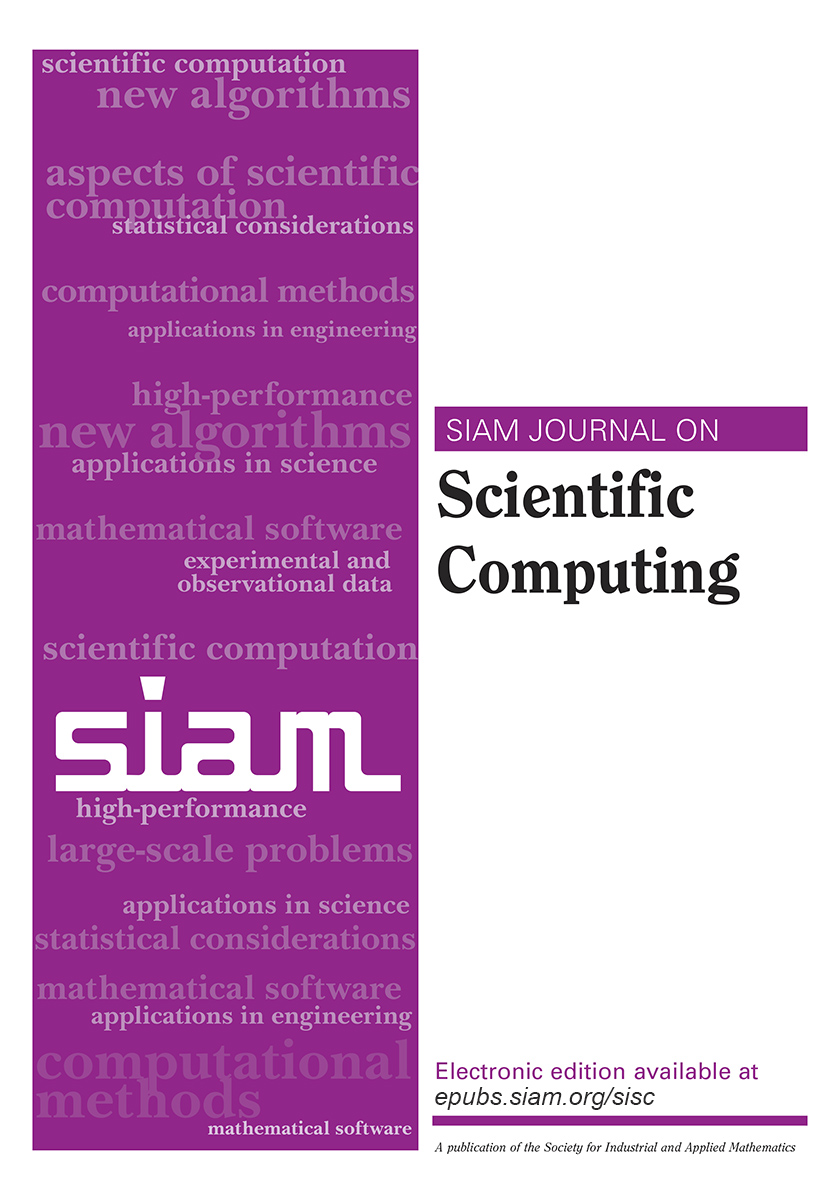Highlighted Topics
- Asynchronous iterative solvers
- Mixed precision iterative solvers
- Randomized iterative solvers and preconditioners
- Eigenvalue and singular value methods and applications
- Solvers at extreme scale & on next gen/accelerator node architectures
- Iterative solvers and machine learning
- Iterative solvers in data science and engineering
- Iterative solvers and Quantum computing
- Iterative solvers for time-dependent PDEs
- Parallel-in-time methods
- Multilevel solvers
- Multigrid methods for partially structured grids
- Rank-structured solvers and preconditioners
- Robust & scalable iterative solution of coupled multi-physics problems
- Solvers for indefinite systems
- Iterative Applications: earth and energy systems
- Iterative Applications: fluids, electromagnetics, plasmas
- Iterative Applications: imaging
- Optimization of complex problems & Systems
- Inverse problems, regularization
- Surrogate modeling & model reduction
- Uncertainty quantification, PDEs with random data
- Scientific Software for Iterative Methods
Conference Format
The 2024 conference will be an in-person conference, with no virtual or hybrid component. The daily schedule will involve five days of parallel sessions.
Code of Conduct
The conference organizers are committed to maintaining the highest standards of professional conduct and providing an environment that is welcoming to all participants. We require all participants to value and respect the rights and dignity of others, and to engage in professional and respectful discussions. No harassment, exclusionary, or discriminatory behavior will be tolerated, and anyone who engages in such behavior will be removed from the conference platforms (physical and virtual). If you are unfamiliar with expected standards of behavior, we encourage you to consult the code of conducts for our professional societies: Any participants who wish to report offending behaviour should do so via email to the conference co-chairs or any member of the Program Committee. All reports will be considered within 24 hours of being sent, by a suitable subcommittee of the Program Committee (chosen to avoid any possible conflicts of interest), and appropriate action taken within that time.Student Paper Competition
A student paper competition will be open to current and recent students attending the conference. In addition, a special issue devoted to the themes of the conference will be open to all.Tutorials
We are excited to have the following tutorial for the upcoming conference:Tutorial on Machine Learning
Edmond Chow, Georgia Tech
2pm -- 5pm, Sunday April 14, 2024
This is a tutorial on machine learning for iterative methods researchers. The tutorial assumes little prior background in machine learning, but will be broad and move quickly. It will focus on key ideas in machine learning and mention the use of iterative methods when they arise (usually in optimization). It will also hint at PDEs and inverse problems. The first half of the tutorial will cover basic ideas including regularization, Bayesian inference, MCMC, Gaussian processes, and kernel methods. The second half of the tutorial will cover stochastic gradient descent, automatic differentiation, expectation maximization, variational inference, and online learning.
Journal Special Section on Iterative Methods
Special Section Editor: Ray Tuminaro
As in previous years, a special section focused on recent advances in iterative methods is planned for publication in the SIAM Journal on Scientific Computing. Submissions are encouraged in all aspects of iterative methods, including this year's highlighted topics.
Attendees and participants of the conference as well as the general community are invited to submit papers. The papers should meet the formatting and editorial requirements of SIAM Journal on Scientific Computing.
Submissions for the special issue will be accepted from
April 14, 2024 until
July 15, 2024 June 30, 2024. Papers will be subject to review
by a guest Editorial Board. Submissions should be made using the ordinary
submission process at
http://sisc.siam.org, with a statement in the cover letter requesting
that the paper be considered for the special issue.
Additional information can be found in the SIAM News: Call for Papers.

Lift Tickets
Equipment rentals
Ski and snowboard equipment can be rented from Charter Sports, with a 35% discount for conference participants (direct link). They can be reached at 888-295-9797 if you have questions or need help booking your rentals. Note that attendees can also just walk into the shop and mention that they are with the "CU Math Conference" and receive the group discount.
Getting Here
The conference is held at Copper Mountain, Colorado, located 75 miles west of Denver just off interstate I-70 at exit 195.
Denver International Airport (DIA) is the closest major airport. From there, most attendees either arrive by shuttle or by car rental.
Summit Express provides shuttle service from DIA to Copper Mountain. The conference group code is "FRSCI" (direct link). The code provides 10% off the shared shuttle service. The full rates are given on the Summit Express website.
Mountain Shuttle also provides shuttle service from DIA to Copper Mountain, but does not provide a conference discount. Note that prices for both companies do vary, and there are some differences in schedules to consider when booking.